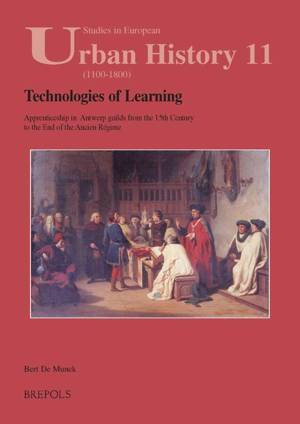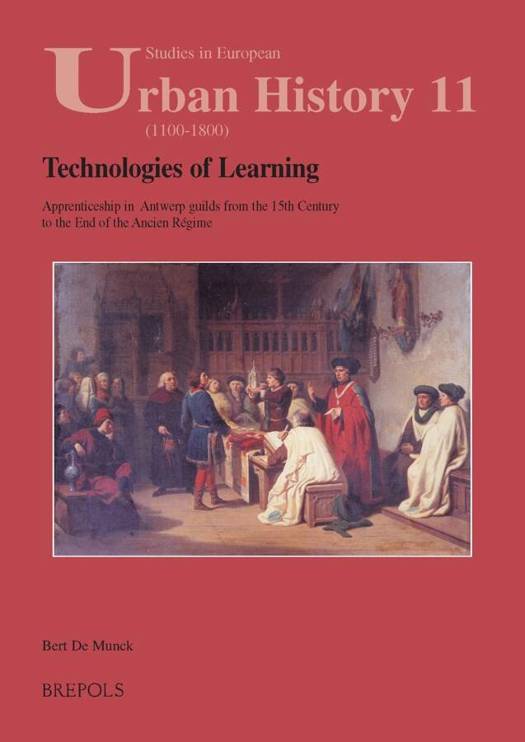
- Retrait gratuit dans votre magasin Club
- 7.000.000 titres dans notre catalogue
- Payer en toute sécurité
- Toujours un magasin près de chez vous
- Retrait gratuit dans votre magasin Club
- 7.000.0000 titres dans notre catalogue
- Payer en toute sécurité
- Toujours un magasin près de chez vous
Technologies of Learning
Apprenticeship in Antwerp from the 15th Century to the End of the Ancien Regime
Bert de Munck
Livre broché | Anglais
53,00 €
+ 106 points
Description
The importance of training and education is on the increase. While the production of 'human capital' is seen as a motor for a competitive economy, skills and expertise proof to be necessary for social mobility. Remarkably, in conceiving modern forms of 'apprenticeship', several mechanisms from the acien regime, seem to return. The difference between public and private initiative is disappearing, education and training is being confused, and in order to acquire generic skills as flexibility, communicability, self-rule, creativity and so on, youngsters have to learn 'in context'. Even for maths, scholars now talk of 'situated learning'.Before the advent of a formal schooling system, training took place on the shop floor, under the roof of a master. The apprentice not only worked but also lived in his master's house and was thus trained and educated at the same time. In cities, this system was formally complemented by an official apprenticeship system, prescribing a minimum term to serve and an obligatory masterpiece for those who wanted to become masters themselves. Traditionally, historians see this as an archaic and backward way of training, yet this book's aim is to show that is was instead a very flexible and dynamic system, perfectly in tune with the demands of an early modern economy.In order to understand it fully, however, we should differentiate the informal training system organised via a 'free market' of indentures on the one hand and the institutionalised system of craft guilds on the other. In Antwerp, early modern guilds had a project of 'emancipating' their members. They didn't simply produce certain skills, but through a system of quality marks defended the honour of craftsmen. This is the difference with current practices. By representing hands-on skills as superior, guilds supplied a sort of symbolic capital for workers.
Spécifications
Parties prenantes
- Auteur(s) :
- Editeur:
Contenu
- Nombre de pages :
- 306
- Langue:
- Anglais
Caractéristiques
- EAN:
- 9782503522708
- Date de parution :
- 04-02-08
- Format:
- Livre broché
- Format numérique:
- Trade paperback (VS)
- Dimensions :
- 181 mm x 250 mm
- Poids :
- 680 g

Les avis
Nous publions uniquement les avis qui respectent les conditions requises. Consultez nos conditions pour les avis.






